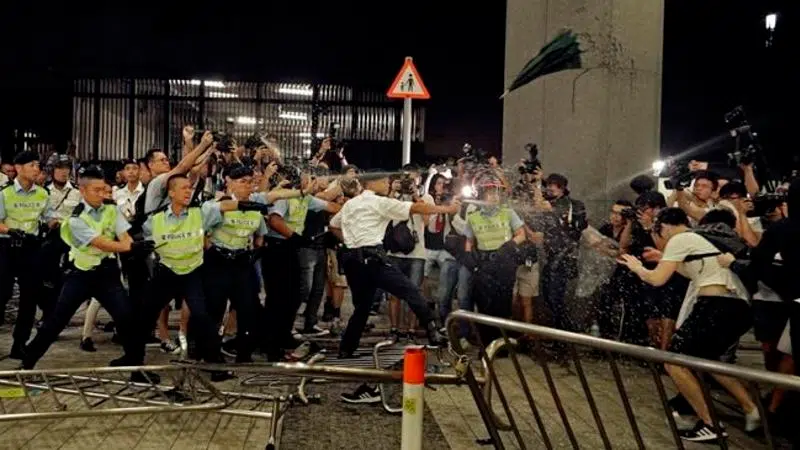
Extradition bill pushes Hong Kong to a political crisis
HONG KONG — A highly controversial legislative measure in Hong Kong that would allow criminal suspects to be extradited to mainland China has pushed the former British colony to its biggest political crisis in years.
A march to protest the measure drew hundreds of thousands of people to the streets Sunday and stretched into Monday, with critics of the bill viewing the changes as part of a steady erosion of their civil liberties.
While Hong Kong Chief Executive Carrie Lam says the legislation will help the semi-autonomous Chinese territory protect human rights, opponents say the changes would significantly compromise its legal independence, long viewed as one of its key distinctions from mainland China.
